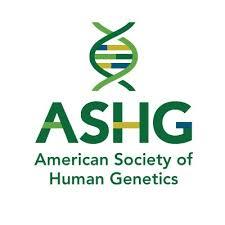An investigation into a missense variant associated with cataracts in Puerto Ricans.
A prospective analysis of disease incidence and progression with genetic, clinical, and lifestyle risk factors.
Those are just two of the seven posters that the 23andMe research team will present at this year’s American Society of Human Genetics (ASHG) meeting.
The meeting, which will be held in Los Angeles October 25-29, provides a forum for the discussion of cutting-edge science in all areas of human genetics.
Highlights of this year’s agenda include symposia, booths, scientific sessions, and workshops, as well as a Presidential Symposium on recent developments in African genomics.
23andMe at ASHG
Below you’ll find a full list of our presentations and posters at ASHG.
In addition to our research contributions, we’ll also have a booth (#1248) where conference attendees can learn more about several of our initiatives – including our Postdoc Program and our Research Innovation Collaboration Program. We hope to see you there!
Wednesday, Oct. 26 from 3:00 – 4:45 P.M. PT

“A Rare Missense Variant of Large Effect is Associated with Cataract in Puerto Ricans”
Jing Shi, PhD, Scientist II, Statistical Genetics
Poster # PB3281

“Comparison of trans-ancestry meta- and mega-analyses of cis-eQTLs in whole blood and LCLs”
Priyanka Nandakumar, PhD, Scientist II, Statistical Genetics
Poster # PB3345

“Prospective analysis of disease incidence and progression with genetic, clinical and lifestyle risk factors”
Wei Wang, PhD, Scientist II, Statistical Genetics
Poster # PB3563
Thursday, Oct. 27 from 3:00 – 4:45 P.M. PT

“Advancing rare disease research through web-based recruitment: the 23andMe Systemic Sclerosis Research Study”
Katelyn Kukar, Associate Program Manager
Poster # PB1256

“The genetic architectures of gene expression in individuals of African and European ancestry: results and consequences of eQTL studies”
Kipper Fletez-Brant, PhD, Scientist II, Computational Biology
Poster # PB2700

“Burden testing of imputed rare variants to inform therapeutic hypotheses”
Zachary Fuller, PhD, Scientist I, Statistical Genetics
Poster # PB3330

“GWAS of pericarditis derived from a natural language processing model on self-reported free text data identifies a genome-wide significant association on chromosome 2q14.1”
Chris German, PhD, Scientist I, Statistical Genetics
Poster # PB3426




